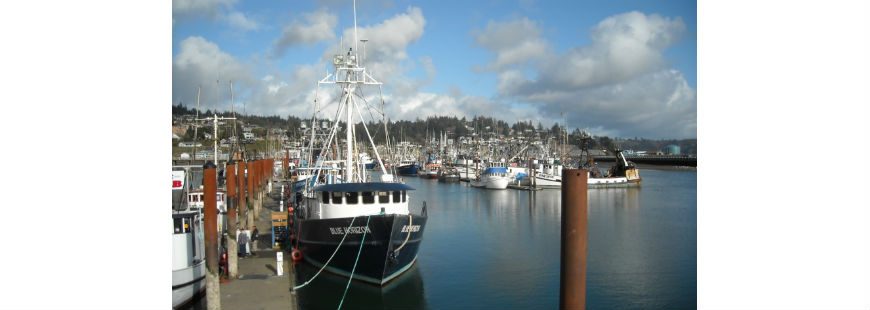Top photo: Newport, Oregon harbor. Read Part Two of this series.
When it comes to supporting the fishing and seafood industries during the coronavirus pandemic and the economic slowdown in America, Congress cannot use the same broad brush stroke it uses to paint other small businesses. Past efforts aimed at supporting small business payrolls in brick and mortar stores failed to take into account the dependence on contract workers or the seasonal nature of the industries. Thankfully, Congress passed much-needed flexibility to the Payroll Protection Program with the recent passage of H.R. 7010, the Paycheck Protection Program Flexibility Act of 2020.
Even with these government program fixes, however, commercial fishing operators, guides, outfitters, processors, restaurants, and chefs face many more challenges along the road to economic recovery. Congress and the Administration will need to create additional, long-term policy initiatives to help these and other small businesses regain their footing and remain long-term contributors to the economy.
In this two-part blog series, the Marine Fish Conservation Network will be sharing its recommendations for addressing the challenges facing the many small businesses we work with. In Part 1, we are presenting our recommendations for supporting the immediate needs of the fishing and seafood industries, which will in turn help to rebuild the economy.
First, the federal government should support direct-to-consumer and working waterfronts infrastructure. Fishermen and processors have seen drastic reductions in sales because of the pandemic. The seafood industry is pivoting to direct-to-consumer models in order to meet the demand for locally sourced, high-quality, domestic seafood. Federal investments in modernizing working waterfronts and increasing seafood supply infrastructure to bring quality seafood to consumers will directly benefit local fishing communities by creating jobs and retail channels. Congress should ensure that the economic gains made in the direct-to-consumer sector are preserved and strengthened as the nation recovers. We support the inclusion of a Working Waterfronts Grant Program as well as other legislative approaches to supporting working waterfront infrastructure.
Second, we recommend including fishermen in the USDA’s Coronavirus Food Assistance Program (CFAP), which received $19 billion in funding in the CARES Act (P.L. 116136). Our country’s fishermen play an equally significant role in harvesting and producing our nation’s food. As new rebuilding funding is appropriated for CFAP, we agree with the calls to include at least $2.78 billion to purchase domestically harvested and processed seafood products and distribute them to local, state, and national non-profits providing food to those Americans in need.
Third, we support an additional $2.7 billion for the National Oceanic and Atmospheric Administration (NOAA) under the terms of section 12005 of the CARES Act in order to provide direct relief to tribal, subsistence, commercial, and charter fishery participants impacted by coronavirus. We encourage Congress to direct NOAA to establish clear and transparently derived allocation formulas, set clear guidelines for use of the funds, and distribute the funds within 30 days of the appropriation on such funds.
These first three recommendations will help alleviate the immediate challenges facing fishing and seafood-related small businesses. In Part 2 of this series, we’ll share our recommendations for building a stronger foundation for these industries for the long term.


